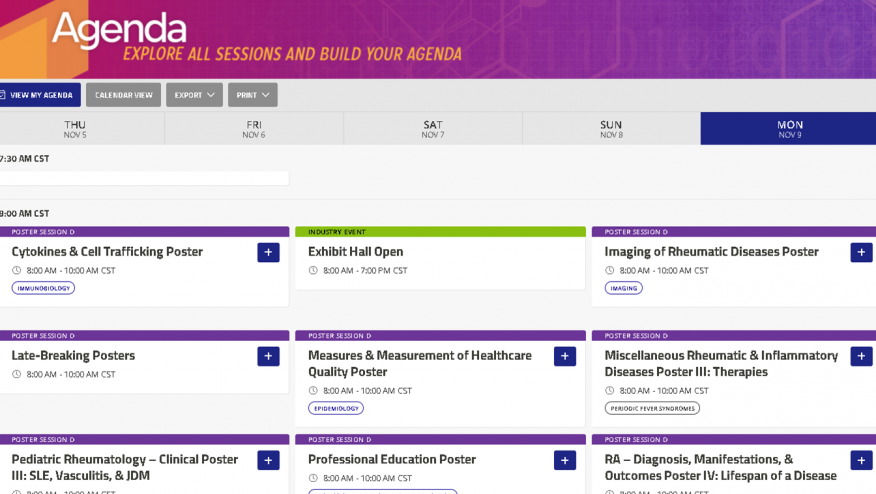ACR20 - Day 4 Report Save

Here are my highlights from day four, Monday, of the ACR 2020 Convergence.
Vaccine Immunogenicity with Tofacitinib
1997. Immunogenicity of Adjuvant Herpes Zoster Subunit Vaccine in Rheumatoid Arthritis Patients Treated with Janus Kinase Inhibitors and Controls: Preliminary Results. This poster evaluated the efficacy of the Shingrix vaccine in 40 RA patients taking tofacitinib (TOFA) and 20 controls. While the adjuvant herpes zoster subunit vaccine was well tolerated and seemingly effective in all, 25% of those on TOFA failed to show an immunogenic response which begs for more study of how and when to vaccinate against shingles in those currently receiving TOFA. Should we do like MTX and hold the DMARD for 2 weeks to allow for optimal responses? The answer is not known. Interestingly another abstract presented (#L04) by Dr. Kevin Winthrop looked at influenza vaccine responses in all RA patients receiving TOFA in 21 Phase II and long-term extension studies between 2005–2019. This included 7,964 pts vaccinated, but only 496 (6.2%) reported influenza with only 1.8% having serious influenza and eight patients (1.6%) hospitalized. Thus they found that flu vaccination was safe and quite protective in TOFA treated RA patients.
Tight Control in Spondyloarthritis
1444. Cluster-randomized Pragmatic Clinical Trial Evaluating the Potential Benefit of a Tight-control and Treat-to-target Strategy in Axial Spondyloarthritis (axSpA): The Results of the TICOSPA Trial. This plenary session abstract examined whether better outcomes could be achieved in axSpA patients treated with intensive monthly tight control care or usual care by rheumatologists. The study involved 160 patients and at 1 year there was no difference in the primary outcome ASAS HI 30% responses – while there was an advantage for T2T (47%) over usual care (36%) this was not statistically significant (p=0.07). While the T2T group had more efficacy and more biologic DMARD use, the safety profile was similar to usual car. Last T2T care was cost effective at only $20,000Euros/QALY.
L08. Long Term Cardiovascular Safety of Febuxostat and Allopurinol in Patients with Chronic Gout: The Febuxostat versus Allopurinol Streamlined Trial (on Behalf of the FAST Investigators). This plenary session abstract concerned the FAST trial – a regulatory commitment study to evaluate the cardiovascular (CV) safety of febuxostat (FEB). This trial follows the CARES trial that showed higher CV events in those treated with FEB. The FAST trial enrolled 6128 gout patients already on allopurinol and randomized half to receive FEB. For 5 yrs. There were comparable withdrawal rates in both arms (5.5-6.2%) and roughly the same number of gout flares (1000/arm) and there were no differences between groups in adverse events. In the end there was no difference in CV events, MACE or cardiac deaths between those treated with FEB or allopurinol; again questioning whether the regulators were right in adding a “boxed warning” over CV risk for those taking febuxostat.










If you are a health practitioner, you may Login/Register to comment.
Due to the nature of these comment forums, only health practitioners are allowed to comment at this time.